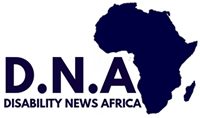
Ghana, a pioneer in establishing schools for the Deaf in Africa, faces a stark reality: despite using sign language as a medium of instruction in these schools, it remains absent as a formal subject in the curriculum. This paradox creates a significant barrier to inclusive education for Deaf children, hindering their linguistic and cognitive development, and ultimately limiting their life opportunities.
The majority of Deaf children in Ghana are born to hearing parents, leading to a communication gap from the very beginning. This lack of shared language hinders early language acquisition, parent-child bonding, and can lead to developmental delays, emotional distress, and social isolation.
While schools for the Deaf use sign language as a medium of instruction, the lack of formal instruction in the language itself presents a substantial challenge. Deaf students are unable to develop sufficient depth and complexity in their language, hindering their academic progress. Furthermore, the absence of sign language as a subject limits their opportunity to explore the richness of their language and culture, and to advocate effectively for their needs.
The consequences are far-reaching. Deaf students often struggle academically, experience low self-esteem, and face social isolation. Their opportunities for higher education and employment are also limited, exacerbated by societal attitudes that perceive deafness as a disability rather than a linguistic and cultural difference.
To address these challenges, several key changes are needed:
• Formalise Sign Language Instruction: Sign language must be integrated into the curriculum as a core subject, taught from an early age. This will provide Deaf children with a strong foundation in their language and enhance their overall cognitive development.
• Prioritise Sign Language Competency in Teacher Training: Teacher training programmes should prioritise sign language competency, ensuring educators in schools for the Deaf are equipped to provide effective instruction.
• Advocate for Deaf Rights: Increased awareness and advocacy are crucial for upholding the rights of Deaf individuals, including their right to language and education.
• Explore Bilingual Education: Implementing bilingual education programmes, combining sign language and spoken language, could be a significant step towards inclusivity. Research suggests that bilingualism promotes cognitive flexibility and enhances language proficiency and literacy acquisition.
Providing equal access to education for Deaf students is essential for social inclusion and economic development. By investing in inclusive and equitable education for all Deaf students, Ghana can unlock their potential and build a brighter future for its entire community.






